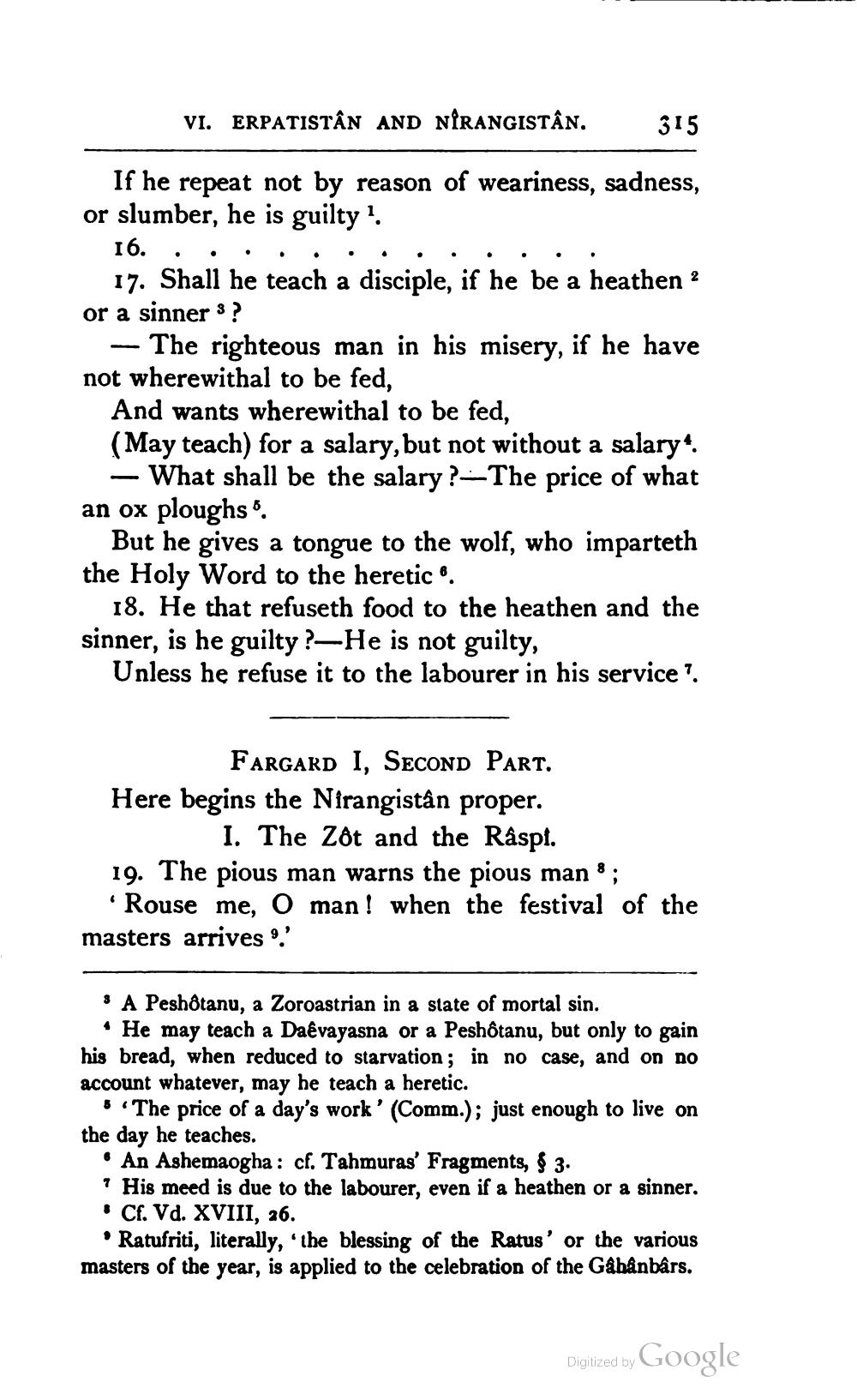________________
VI. ERPATISTÂN AND NIRANGISTÂN. -
315
If he repeat not by reason of weariness, sadness, or slumber, he is guilty
16. . . . . . . . . . . . .
17. Shall he teach a disciple, if he be a heathen ? or a sinner 3?
- The righteous man in his misery, if he have not wherewithal to be fed,
And wants wherewithal to be fed, (May teach) for a salary, but not without a salaryo.
- What shall be the salary ? -The price of what an ox ploughs.
But he gives a tongue to the wolf, who imparteth the Holy Word to the heretic.
18. He that refuseth food to the heathen and the sinner, is he guilty ?-He is not guilty,
Unless he refuse it to the labourer in his service ?
FARGARD I, SECOND Part. Here begins the Nirangistân proper.
1. The Zot and the Råspi. 19. The pious man warns the pious man 8;
Rouse me, O man! when the festival of the masters arrives.'
: A Peshötanu, a Zoroastrian in a state of mortal sin.
• He may teach a Daevayasna or a Peshôtanu, but only to gain his bread, when reduced to starvation; in no case, and on no account whatever, may he teach a heretic.
5.The price of a day's work' (Comm.); just enough to live on the day he teaches. • An Ashemaogha : cf. Tahmuras' Fragments, $ 3.
His meed is due to the labourer, even if a heathen or a sinner. . Cf. Vd. XVIII, 26.
• Ratufriti, literally, the blessing of the Ratus' or the various masters of the year, is applied to the celebration of the Gåbånbârs.
Digitized by Google




